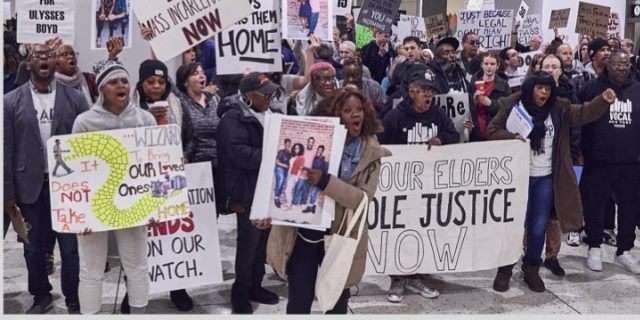
R.A.P.P. Free Our Elders Rally in Albany, N.Y.
New York’s Release Aging People in Prison (RAPP) leads the way
Prisons are death camps for lifers; end Life Without Parole

Ricardo Ferrell
By Ricardo Ferrell
VOD Field Editor
Our country is experiencing one of the worse pandemics in its history, and the death toll is rapidly rising daily. We must address the growing problem of aging people in prisons across America who are slowly deteriorating and dying due to poor health, inadequate medical attention and not being granted well-deserved releases. In Michigan there are hundreds of elderly individuals that have served 35, 40, 45, & 50 + years but still remain in prison despite statistical data. indicating they will likely never reoffend if granted parole.
In states like New York, efforts calling for the release of aging prisoners are getting the attention of many, including State Legislators, the New York Parole Board, and Gov. Andrew Cuomo. The New York-based organization RAPP (Release Aging People in Prison) founded in 2013 by Jose Saldana has been relentlessly advocating for the release of aging prisoners for several years.
Saldana, who served 38 years behind bars and was granted parole in 2018, hit the ground running, focusing his attention on reaching back to help similarly situated people left behind. RAPP’s efforts include a push to eliminate Life Without Parole (LWOP), which is virtually a death sentence. Many who receive these sort of sentences never see the light of day again on the other side of the fence. Those who are given LWOP, even though not an actual death sentence are still treated as if they have been handed down the death penalty.
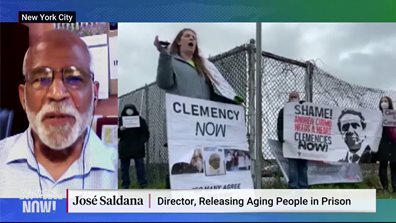 The same rings true in other states besides New York, who actually have the death penalty. The death penalty has long been abolished in Michigan since 1847. However, a life sentence basically equates to death by incarceration. Meaning, the Michigan Parole Board’s practice of the ‘Life Means Life’ policy, even if its a parolable life sentence, places all lifers in the same category.
The same rings true in other states besides New York, who actually have the death penalty. The death penalty has long been abolished in Michigan since 1847. However, a life sentence basically equates to death by incarceration. Meaning, the Michigan Parole Board’s practice of the ‘Life Means Life’ policy, even if its a parolable life sentence, places all lifers in the same category.
Vermont and Pennsylvania have introduced legislation, that if passed, would abolish Life Without Parole (LWOP) in their states. Criminal Justice Reform advocates like Larry Krasner, Robert Kraft, Michael Rubin, and Shawn ‘Jay-Z’ Carter, all came together and called for the release of Robert Williams a/k/a Rapper Meek Mill.
Meek Mill is now auctioning his beloved Rolls Royce Phantom to provide aid in the battle against the coronavirus pandemic, along with other celebrities like Kevin Hart (below).
JUST IN: @MeekMill is going ALL IN! Meek is donating his 2019 Rolls-Royce Phantom and you can bid now! Visit https://t.co/K1pgbCkwkM to learn more and help raise tens of millions of dollars to feed those in need. #ALLInChallenge pic.twitter.com/ubaVR1mKws
— Fanatics (@Fanatics) April 14, 2020
In 2017, Pennsylvania State Senator Sharif Street introduced Senate Bill 942 aimed to end life without parole sentences in his state. In an article written by Ray Downs on March 26, 2018, Street is quoted as saying, “Not all victims of crime want people to die behind bars.” There are similar sentiments by 80% of crime survivors in Michigan, who believe offenders should have their time reduced, if they were to participate in, and complete mandatory programming, i.e., counseling, vocational, academic, and other requirements which are rehabilitative and helps towards offender success.

Members of RAPP rally against prison death camps.
Michigan needs major reforms to its parole board in how it paroles eligible elderly prisoners, so as to reflect fairness and provide meaningful opportunities for release of the growing aging population in its prisons. The large percentage of aging prisoners is needlessly costing taxpayers millions and millions of dollars annually. Most of the aging prisoners have serious health issues, e.g., cancer, liver damage, heart disease, diabetes, thyroiditis, high blood pressure, and a number of other chronic care illnesses.
What penological interest could there be to continuously hold elderly, sick, infirmed, and dying people in prison, who don’t pose a risk, threat, nor danger to public safety? In fact, the draconian practice of holding reformed, rehabilitated, and redeemed people in our prisons beyond the need is asinine and spells poor logic on the part of corrections officials.
The Michigan Legislature should introduce measures that could bring forth the reforms needed of the current parole process, which is broken and ineffective. Gov. Gretchen Whitmer should step in and enact an Executive Order to release aging people in Michigan’s prisons, especially those suffering from the noted health conditions mentioned above. Doing so, could easily free up monies to help “fix the damn roads,” one of Whitmer’s campaign slogans in 2018.
It would also allocate a portion of the wasteful spending in the corrections budget of $2.2 billion towards repairing the rest of the crumbling infrastructure around the state, cleaning up the water systems of PFAS and other life threatening contaminants.
Less than 1% of the group of aging prisoners recidivates. They almost never commit the same crime that landed them in prison decades ago because they have now aged out of crime. Sadly, the majority of lifers in Michigan and across the U.S., are people of color, who’s life expectancy is less than their counterparts. Let’s seriously look at how Michigan can revamp, reform, and rewrite its parole policies and procedures to be more in line with other states that have done so, resulting in the release of aging people from their prison systems.
Since 2009, Michigan has safely paroled some 428 lifers; none have reoffended by committing the same or similar crimea. This aging group of people who are now in their 60s, 70s & 80s, if released, would likely be more concerned with improving their health rather than rushing to indulge in criminality, wouldn’t you think?
 Michigan’s vicious sentencing policies have affected 200 juvenile lifers still serving unconstitutional sentences. Below, one, William Garrison, died this week after his re-sentencing. He was awaiting parole in May, after being incarcerated since the age of 16. The prison he was in, Macomb Correctional Facility, has the third highest number of COVID-19 cases in the state and houses many juvenile lifers in its Re-Entry Program.
Michigan’s vicious sentencing policies have affected 200 juvenile lifers still serving unconstitutional sentences. Below, one, William Garrison, died this week after his re-sentencing. He was awaiting parole in May, after being incarcerated since the age of 16. The prison he was in, Macomb Correctional Facility, has the third highest number of COVID-19 cases in the state and houses many juvenile lifers in its Re-Entry Program.
Michigan Juvenile Lifer Who Died Of Coronavirus In Prison Was Weeks Away From Parole (excerpt)
Angie Jackson, Detroit Free Press
April 18, 2020

William Garrison, in photo taken by sister in 2009 during a visit.
William Garrison was due to come home from prison in early May. After nearly 44 years incarcerated, he would be free from a life sentence handed to him as a juvenile.
His sister Yolanda Peterson had prepared a room for him to stay in her Harper Woods home and planned for his parole agent to come see the place. She was brainstorming how, given the coronavirus pandemic, she might help her brother celebrate his 61st birthday at the end of May.
Plans for the future fell apart Monday, when Peterson got word that her brother, [who had tuberculosis as a baby and had a lung removed] had died unexpectedly in prison.
Garrison’s bunkmate found him gasping for air that evening in their two-man cell at Macomb Correctional Facility, according to Michigan Department of Corrections spokesman Chris Gautz. Staff performed CPR. Garrison was transported to a hospital, where he was pronounced dead, Gautz said.
A postmortem test confirmed that he was positive for COVID-19.
Peterson said it hurts for her brother to die now after “surviving 44 years in prison,” when his freedom was weeks away. “My brother shouldn’t have died in there like that,” she said Friday evening.
Garrison is one of 17 state prisoners who’ve died of COVID-19 as of Friday.
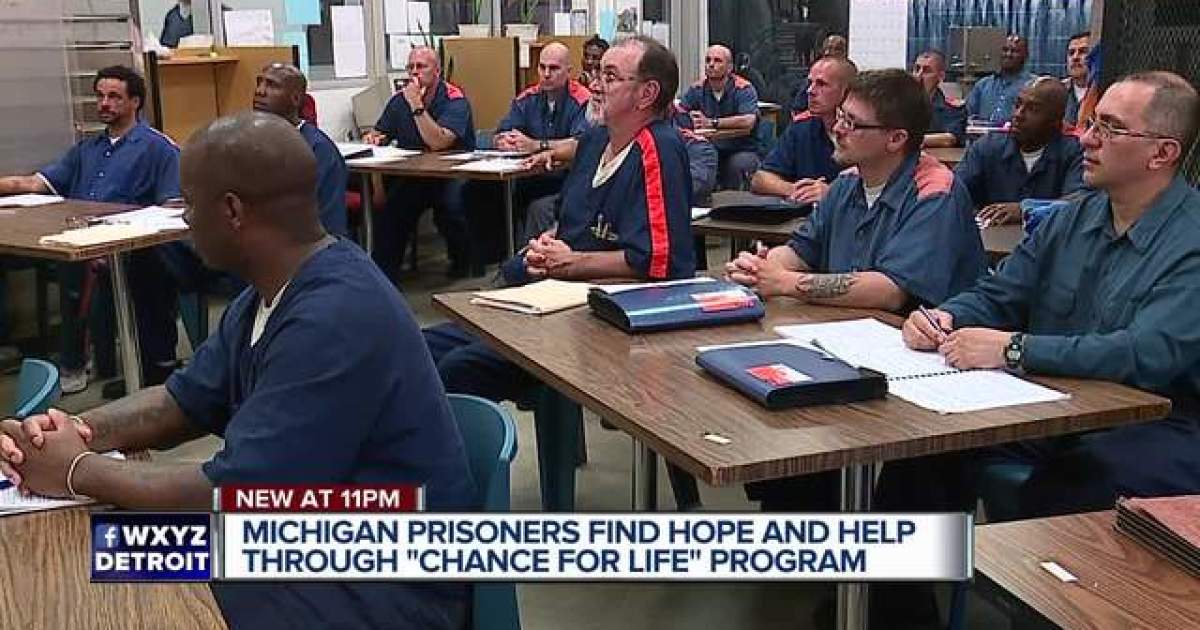
Prisoners at Macomb CF taking “Chance for Life” re-entry program in earlier days. Many juvenile lifers were there awaiting re-sentencing in Macomb’s Re-Entry Program, but Garrison ended up having no “Chance for Life.”
More than 520 prisoners have tested positive, out of the 805 total prisoners tested as of Friday. The Department of Corrections houses roughly 38,000 prisoners. With relatively high infection rates at a handful of facilities including Macomb — where 78 prisoners were confirmed to have COVID-19 as of Friday — experts have said there are likely many more undetected cases throughout the prison system.
More: Infection rate at Michigan prison exceeds New York, Chicago jail hot spots
Life without parole
Garrison was sentenced to automatic life in prison without parole on a conviction of first-degree murder for a shooting when he was 16 in 1976.
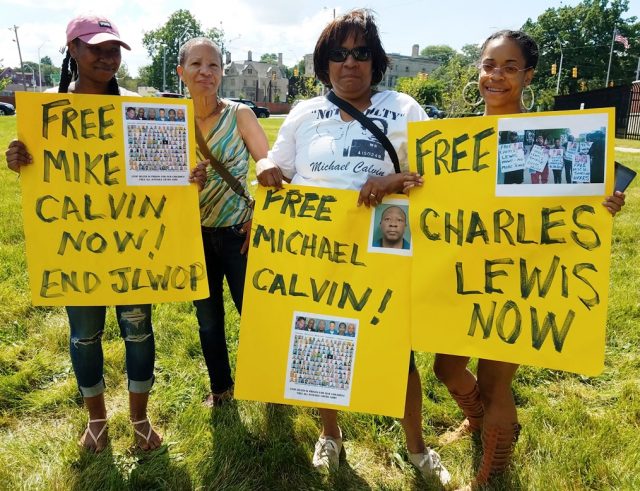
Kim Craighead, (3rd from l) with family members, campaigns for freedom for her husband Michael Calvin and his childhood friend Charles Lewis, both juvenile lifers. They were later re-sentenced and freed after spending time at Macomb’s Re-Entry Facility. Each had spent over 41 years in prison for crimes they did not commit. Calvin was not the shooter in a group of several adults who killed a man. Lewis had been the subject of numerous stories in VOD demonstrating his innocence.
He had an opportunity to be resentenced after a 2016 U.S. Supreme Court decision. The court ruled that its 2012 decision that struck down mandatory life sentences for juveniles convicted of murder should be applied retroactively.
Garrison had a [re-sentencing] hearing in December, where his attorney Becky Hahn presented evidence that her client had been rehabilitated and was no longer the troubled individual who entered prison as a teenager.
In court, Garrison said he was illiterate when he entered prison as a teenager, a result of falling behind in school due to years of hospitalization for tuberculosis, Peterson said. He taught himself to read and write. He studied the law and hoped to help other juvenile lifers upon his release.
“He was a zealous advocate for himself and for other incarcerated persons. He often helped other individuals with their legal matters,” Hahn said.
‘Trying to get free’
A judge in January resentenced Garrison to a term of 40 to 90 years. He’d already served 43 years. The parole board approved his release.
But Garrison declined to parole then. He said he’d rather be discharged from prison than paroled because parole would’ve subjected him to the department’s supervision and restrictions.
Garrison didn’t view parole as freedom. “He was trying to get free,” Peterson said.
Though his new maximum sentence was 90 years, Garrison was eligible to be discharged from prison, without parole, in September because he had been awarded more than 7,000 days of “good time” credits, Gautz said.
He initially planned to remain in prison until then, but that changed when COVID-19 made its way into the prison system, Peterson said. Garrison was again considered for parole in late March and was approved, Gautz said.
A prosecutor has 28 days to appeal the board’s decision to grant parole to a prisoner. In light of the COVID-19 outbreak, MDOC recently began asking prosecutors to waive that 28-day period to expedite release in some cases.
Wayne Co. Pros. Kym Worthy delays waiver response, which could have saved Garrison’s life
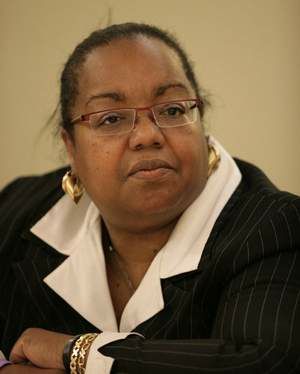
Wayne Co Pros. Kym Worthy
Gautz said the department sent a waiver request for Garrison’s case to the Wayne County Prosecutor’s Office on April 8 and did not hear back before his death five days later.
Maria Miller, spokeswoman for the prosecutor’s office, confirmed that a letter regarding Garrison’s parole was emailed to Prosecutor Kym Worthy. The window to contest his parole would’ve expired May 6. A decision, which would have involved notifying any victims or family members, had not yet been made, Miller said.
Hahn said Garrison’s death is a tragedy.
“I really do think that if he was here, he would want his death to shed light on the dire situation that those others are facing in MDOC,” she said.
Angie Jackson covers the challenges of formerly incarcerated citizens as a corps member with Report for America, an initiative of The GroundTruth Project, with support from the Hudson-Webber Foundation. Click here to support her work. Contact Angie: ajackson@freepress.com; 313-222-1850. Follow her on Twitter: @AngieJackson23
Below is one of Meek Mill’s many rap songs, which explore the effects of poverty, police killings, the CIA importation of drugs to poor, especially Black communities, and mass incarceration.





Let’s end life without parole
Another unfortunate death all because the State of Michigan can’t understand that a man don’t have to be incarcerated 40 plus years to change his criminal thinking and behavior. It is a double standard for the politicians and the rich. They always merit second chances for theirs. Other rich folks and politicians. Patty Hearst committed a “Bank ROBBERY” her co-defendants fired multiple shots and someone was killed. Was she worthy of a second chance and how much time did she serve? Well there are still JUVENILE LIFERS that committed serious felonies causing death as children with underdeveloped minds and impulsive behaviors. Fortunately the United State Supreme Court ruled that it was cruel and unusual punishment to believe these children could never be rehabilitated. If God can forgive society should be forgiving and for fair dealing rather you are a politician or rich. Poor peoples and minorities are worthy of second chances. By the way there is another Class of men serving Life Sentences without parole where our State Supreme Court held that their convictions are “FUNDAMENTLY UNFAIR” that was forty year ago. Where is their Justice. See People vs Aaron 1981 must these men too die a second death?